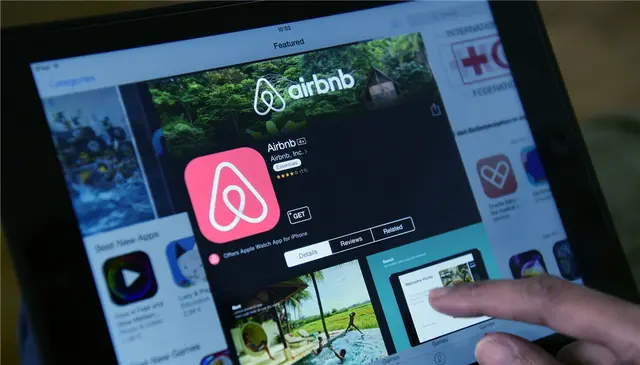Airbnbis under fire after a transgender guest was denied a stay by a host who felt “uncomfortable”.
When the guest complained privately to Airbnb in 2015, the company did not remove the host, but in fact later promoted her to “super host” status, which rewards more experienced hosts with multiple five-star reviews from their guests.
It took a viral tweet years later from that guest – a well-known Hollywood producer – to get the company to act.
Shadi Petosky, producer of the children’s show Yo Gabba Gabba and creator of the new Amazon show Danger & Eggs, on Sundaytweeted a screenshotof a Minneapolis-based host denying her a stay because of her gender identity.
This comes at a time when the home-sharing company is under heavy criticism from black guests who say they’re regularly denied because of their race and have been sharing stories and screenshots under the hashtag#AirbnbWhileBlack.
Airbnb responded quickly, with public affairs director Nick Pappas writing: “Discrimination has no place in the Airbnb community. We are removing this host from Airbnb.”
Airbnb responded quite differently in 2015, when Petosky first shared her experience with them privately. “They asked me who she was but didn’t take her off the platform then. She became a super host,” Petosky said. “But now that there’s this larger conversation around Airbnb and race, so I just posted to add the trans perspective.”
Pappas did not respond to questions about their response to the 2015 incident, but did say: “We are conducting a comprehensive review and examining what can be done to ensure we resolve these kinds of issues quickly and help make sure everyone is treated fairly.”
When Petosky was making arrangements with the Minneapolis-based host, she disclosed she was trans. “I usually just say that I’m transgender in an intro email. I don’t want to arrive at a scene and feel unsafe,” Petosky said. “For trans people we’re just so often seen as trying to trick people.”
The host’s response, citing fear for her son, was all too familiar for Petosky, who said that people often use the notion of children’s safety as a way to discriminate against trans people.
“I think that she’s using kind of coded language that is really effecting trans people right now. The idea that we’re negatively impacting kids or hurting children is a really hard thing for trans people,” she said. “People are using their children to discriminate against trans people.”
“They don’t realize we’re parents, too,” she said.
Airbnb puts more power of choice in their host’s hands than a traditional hotel, which would take reservations based on whether there’s space in the hotel. Petosky said she’d never been denied a stay at a hotel for being trans.
The home-sharing service lets hosts see headshots and have chats before approving a guest, who often will be staying in the home at the same time as the host. These screening layers give hosts the ability to discriminate in a way hotels never could. And despite outcry, Airbnb currently has no anti-discrimination training for hosts or de-activation system for hosts who systematically deny black or trans guests.
This is in contrast to Airbnb’s very gay-friendly advertising campaign that centers on the word “mankind”, often breaking it apart in print ads to emphasize the word “kind”. Airbnb, which hassponsored San Francisco’s gay pride parade, turns their logo rainbow-colored for the events. One of Airbnb’s recent advertisements featured a trans couple.
“The reality is Airbnb doesn’t have any training or anything to block discrimination,” Petosky said.
Airbnb responded to Petosky’s tweet with a general terms of service, she said. “They called and left a message and didn’t leave a number to call them back,” she said.
(THE GUARDIAN)
 简体中文
简体中文

